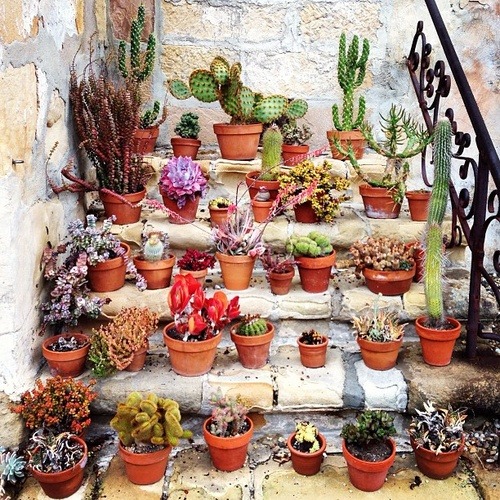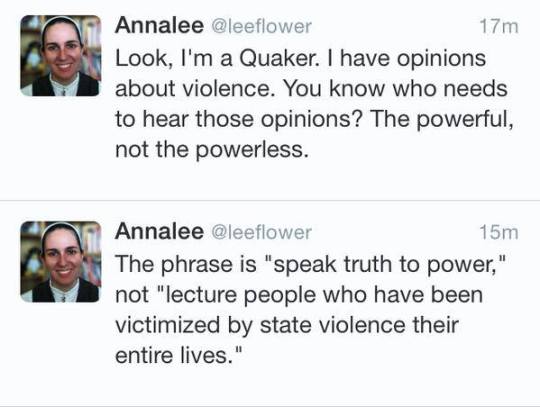andthatshowchangehappens
4K posts
I'm Theresa. I like art and revolutions.
Don't wanna be here? Send us removal request.
Photo


Georgia O’keeffe
Corn No.2, 1924
Corn Dark I, 1924
365 notes
·
View notes
Photo

http://weheartit.com/entry/61554629
148K notes
·
View notes
Photo







European Citizens Providing Food, Other Help To Exhausted Refugees Marching To Austria - Buzzfeed
More than 1,000 Syrians began marching from Budapest to Austria Friday as they fled violence in their own war-torn country. Along the way, local residents provided some help.
59K notes
·
View notes
Text
You can speak things into existence without giving details. I tell maybe four close people what I’m going after. Those people are highly positive and spiritual. I know they only want to best for me. Their energy with mine is what helps make things happen for me. Don’t go telling random people details. It will only harm you if their energy isn’t right. Be careful, but be faithful in your goals and the universe!
18K notes
·
View notes
Photo





Blue Nudes
(2, 5) Henri Matisse
(1,4) Georgia O'Keeffe (Nude)
(3) Egon Schiele
16 notes
·
View notes
Video
youtube
We met Amber at an abortion clinic in Texas. Her struggle to get the care she needed broke our hearts—but her strength will give you hope. Stand with Amber and sign the pledge: my word is the last word on my reproductive health care.
257 notes
·
View notes
Photo

I don’t know if this has already been done, but I think about it a lot.
189K notes
·
View notes
Link
this is crazy. i know so many Natives who kept their long hair while in prison; having their hair forcibly cut off when they go in is just more unnecessary trauma and dehumanization, for literally no reason other than prejudice and cruelty. as the article points out, there are 39 jurisdictions that already allow Native inmates to have their long hair and there has never been any safety issues. and Muslim inmates recently won a case that allowed them to alter hair regulations for the same reasons Natives are using (religious)–why does it not hold up for Natives too? this makes me so mad.
3K notes
·
View notes
Photo





Before/After Assholes
Toxic water floods river after EPA disaster at Gold King Mine in Silverton
Source: The Durango Herald
GIFs: The Gasoline Station
96K notes
·
View notes
Link
11K notes
·
View notes
Text
i am already sick to death of people acting like casting Ruby Rose for OitNB is so freaking revolutionary like: finally a queer person playing a queer person on television! i mean:
are you

fucking

kidding me?

(sounds more like you’re excited about a skinny, white, super conventionally attractive queer person playing a queer person on television… but w/e)
329K notes
·
View notes
Text
cool indigenous feminist scholars to check out
there are soooo many indigenous scholars who are feminist, this is a short list of some that write more explicitly on feminism, gender & sexuality, violence against women, woman empowerment, etc. there are way more out there (and even more Native woman academics with feminism-informed work), so this is really just a start with a few suggestions.
for a list of really cool amazing Native women outside academia, i recommend checking out this Inspiring Native Women collection.
Cutcha Risling Baldy (Hupa, Karuk, Yurok): Cutcha Risling Baldy is a scholar whose work applies Native American Studies to feminist theory, literary theory and the development of Indigenous methodologies. Some of her current research focuses on the resurgence of one ceremony of the Hupa people (The Flower Dance) and the social and community growth that happens because of the return of this ceremony. In 2007, Ms. Risling Baldy founded the Native Women’s Collective, a nonprofit organization, to support arts and culture projects in the Native American community.
Devon Mihesuah (Choctaw): Devon Abbott Mihesuah is a Choctaw historian and writer. Mihesuah is a professor of applied Indigenous studies and history at Northern Arizona University. Her books include Indigenous American Women: Decolonization, Empowerment, Activism; Cultivating the Rosebuds: The Education of Women at the Cherokee Female Seminary, 1851–1909; and Roads of My Relations.
Dian Million (Tanana Athabascan): Dian Million’s most recent research explores the politics of mental and physical health with attention to affect as it informs race, class, and gender in Indian Country. She is the author of Therapeutic Nations: Healing in an Age of Indigenous Human Rights, which is a discussion of trauma as a political narrative in the struggle for Indigenous self-determination in an era of global neoliberalism.
Haunani-Kay Trask (Kanaka Maoli): Haunani-Kay Trask is a feminist, indigenous rights activist, and Professor of Hawaiian Studies at the University of Hawaii. Trask is the author of several books on feminist and political discourse. Her titles include Eros and Power: The Promise of Feminist Theory; Light in the Crevice Never Seen; From a Native Daughter: Colonialism and Sovereignty in Hawaii; and Night Is a Sharkskin Drum.
ku’ualoha ho’omanawanui (Kanaka Maoli): ku‘ualoha ho‘omanawanui is associate professor of Hawaiian literature in the English department at the University of Hawai‘i at Mānoa, and a poet, artist, and mālama ‘āina advocate. She specializes in traditional Hawaiian literature (including folklore and mythology), Oceanic (Pacific) literature, and indigenous perspectives on literacy. Her book, Voices of Fire–Reweaving the Lei of Pele and Hi‘iaka Literature, recovers the lost and often-suppressed political significance of stories of the volcano goddess Pele and her little sister Hi’iaka (patron of hula).
Jennifer Nez Denetdale (Navajo): As the first-ever Diné/Navajo to earn a Ph.D. in history, Dr. Jennifer Nez Denetdale is a strong advocate for Native peoples and strives to foster academic excellence in the next generation of students interested in Native Studies. Denetdale is an Associate Professor of American Studies at the University of New Mexico and teaches courses in Native American Studies. She specializes in Navajo history and culture; Native American women, gender, and feminisms; and Indigenous nations, colonialism, and decolonization.
Jessica Danforth (Akwesasne Mohawk): Jessica Danforth is an attorney and the Executive Director of Native Youth Sexual Health Network. Jessica Danforth is a self-described “multiracial Indigenous hip-hop feminist reproductive justice freedom fighter.”
Leanne Simpson (Anishinaabe): Simpson is the author of three books; Dancing on Our Turtle’s Back, The Gift Is in the Making, and Islands of Decolonial Love, and the editor of Lighting the Eighth Fire, This Is An Honour Song (with Kiera Ladner) and The Winter We Danced: Voice from the Past, the Future and the Idle No More Movement (Kino-nda-niimi collective). She is of Michi Saagiig Nishnaabeg ancestry and a member of Alderville First Nation.
Lee Maracle (Salish, Cree): Lee Maracle is a member of the Stó:lō Nation. She strives to integrate European literary styles and Native oral storytelling forms, while confronting the cultural rifts between aboriginal and white society and the resulting problems for individual identity. Her work addresses the relationship between violence against women and violence against the land.
Pamela Palmater (Mi’kmaq): Pamela Palmater is a lawyer who has dedicated her life to advocating for the rights of Indigenous people and empowering Indigenous women. Associate Professor in the Department of Politics and Public Administration and Chair in Indigenous Governance at Ryerson University, Pamela is a commentator, author, social media enthusiast and the inaugural Academic Director of Ryerson’s Centre for Indigenous Governance. Pamela works with diverse First Nations, community groups, students and feminist legal scholars to empower Indigenous women and build communities characterized by equality, inclusion and self determination.
Paula Gunn Allen (Laguna Pueblo): Paula Gunn Allen was a poet, literary critic, lesbian activist,and novelist. She drew from Pueblo oral traditions for her fiction and poetry, and also wrote numerous essays on its themes. She edited four collections of Native American traditional stories and contemporary works, and wrote two biographies of Native American women. In addition to her literary work, in 1986 she published a major study on the role of women in American Indian traditions, arguing that Europeans had de-emphasized the role of women in their accounts of native life because of their own patriarchal societies. It stimulated other scholarly work by feminist and Native American writers.
Sarah Deer (Muscogee Creek): Sarah Deer is a legal scholar and advocate leveraging her deep understanding of tribal and federal law to develop policies and legislation that empower tribal nations to protect Native American women from the pervasive and intractable problem of sexual and domestic violence. A citizen of the Muscogee (Creek) Nation of Oklahoma, Deer has documented in academic scholarship the historical and ideological underpinnings of the failure to adequately protect victims of physical and sexual abuse in Indian Country, and she has worked with grassroots and national organizations attempting to navigate the complex legal and bureaucratic hurdles facing Native victims of violence.
Winona LaDuke (Anishinaabe): Winona LaDuke is an enrolled member of the Mississippi Band Anishinaabeg who lives and works on the White Earth Reservations. She is also the Executive Director of Honor the Earth, where she works on a national level to advocate, raise public support, and create funding for frontline Native environmental groups. She serves as co-chair of the Indigenous Women’s Network, a North American and Pacific indigenous women’s organization. She has written extensively on Native American and environmental issues. Author of now six books, including The Militarization of Indian Country, Recovering the Sacred: the Power of Naming and Claiming, and All our Relations: Native Struggles for Land and Life.
12K notes
·
View notes





